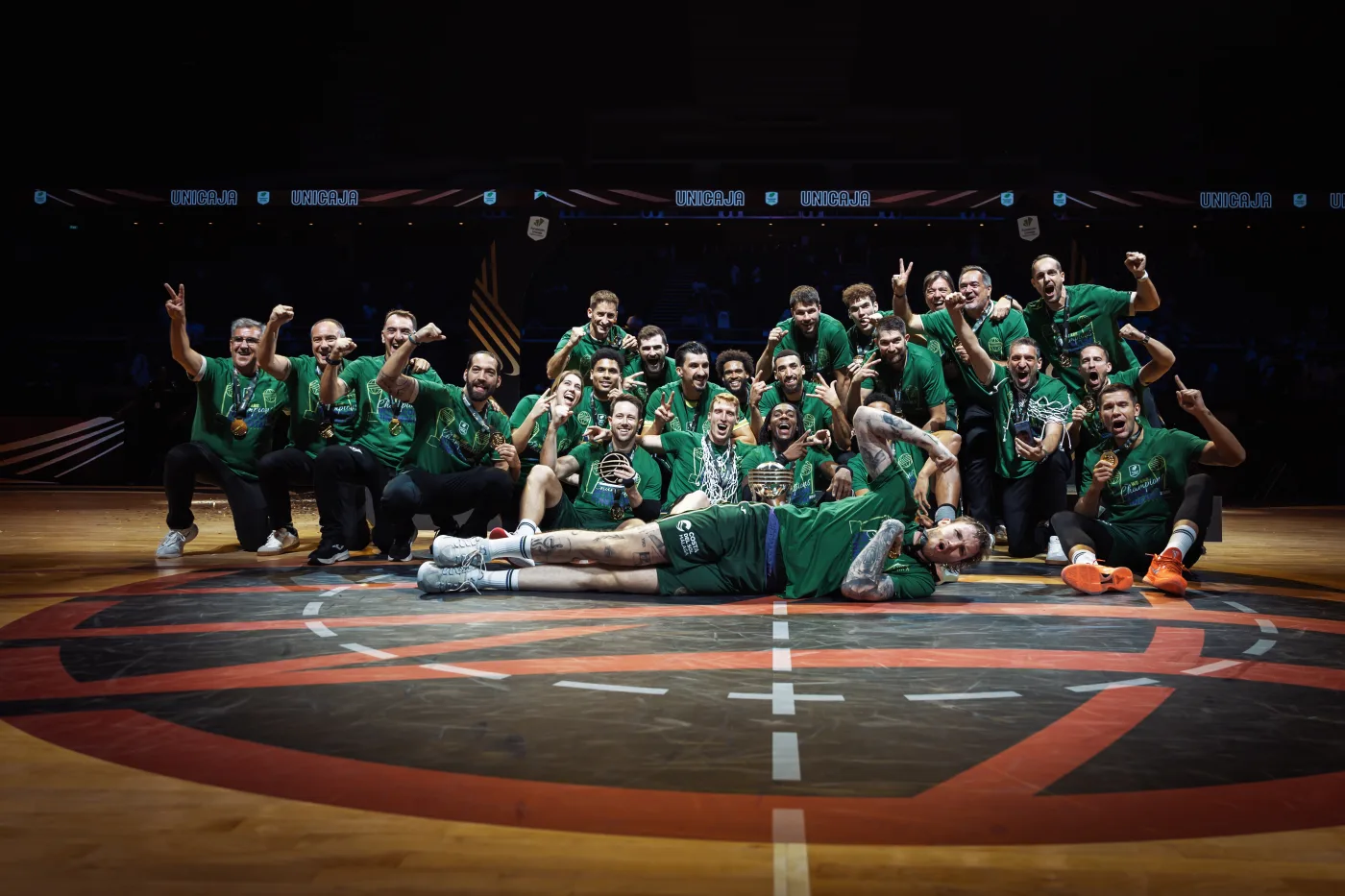FIBA Intercontinental Cup 2025: Spain’s Unicaja repeat over NBA G League United
SINGAPORE INDOOR STADIUM, SINGAPORE – Spain’s Unicaja Malaga has etched its name in history once again, as the reigning champions defended their crown on Sunday, defeating NBA G League United 71-61 to claim the 2025 FIBA Intercontinental Cup.
With the victory, Unicaja became just the second club in nearly five decades to win back-to-back titles in the competition.
The night was a tale of two halves. NBA G League United, a select team assembled only three weeks prior to the tournament, delivered a spirited opening, even holding the lead at halftime. But Unicaja’s championship pedigree and defensive intensity took over after the break, as the Spanish side seized control with a dominant third quarter and never looked back.
Despite their limited preparation, NBA G League United looked sharp early. Chasson Randle set the tone with aggressive shot-making, while Feron Hunt made his presence felt on the glass. Their quick tempo and commitment to sharing the ball frustrated Unicaja in stretches, and by halftime, United held a 36-33 advantage over the defending champions.
It was a proud moment for head coach Joseph Blair, who praised his group for how they embraced the challenge of representing the G League against top international competition. “FIBA ICC is more than just basketball; this is unity,” Blair said after the game. “I’m proud, especially after being assembled three weeks just before the tournament.”
That pride carried over into the locker room, where the players spoke of how quickly they bonded. Randle, one of United’s veterans, highlighted the camaraderie that formed in a short time. “It was a fun group; everybody understood the mission,” Randle said. “We had great moments, we had so much talent playing together. It felt like family, we became brothers, and I look forward to continuing the relationship with these guys.”
United’s fight was evident, but the challenge of sustaining that level against an experienced European power loomed large.
Coming out of halftime, Unicaja’s approach shifted dramatically. Head coach Ibon Navarro’s squad turned up the pressure, forcing turnovers and dictating the tempo. The result was a 23-5 third-quarter run that completely flipped the game. By the end of the frame, Unicaja had built a commanding 56-41 lead, silencing United’s early momentum.
Navarro admitted his team was shaky to start, but credited his veterans for settling in and sticking to the plan when it mattered most. “We started the game not following the game plan, not controlling the first six seconds of G League’s play,” Navarro explained. “We were going too early when we needed to slow it down. But the veterans knew what to do.”
That third-quarter stretch was punctuated by timely three-pointers, aggressive drives from Kendrick Perry, and suffocating defense in the paint. United, who had looked confident in the first half, suddenly struggled to find clean looks, committing turnovers under pressure and falling behind by double digits.
Though they tried to mount a comeback in the fourth quarter, the damage was already done. Every time United threatened to chip away, Unicaja’s poise and execution restored control.
At the heart of Unicaja’s run was guard Tyler Kalinoski, whose steady contributions throughout the tournament earned him Most Valuable Player honors. A veteran sharpshooter, Kalinoski provided more than just scoring; his floor spacing, defensive reads, and leadership embodied the consistency that defined Unicaja’s run.
After years of coming close in similar situations, Kalinoski admitted the recognition meant a great deal, but was quick to keep the focus on the collective achievement. “I am a team player – winning the championship is my first priority,” Kalinoski said. “But I can’t lie, it feels really good. I’ve been in this situation many times before where I almost won, and now I finally won it. But the big trophy means more to me.”
While Kalinoski claimed MVP, it was Kendrick Perry who earned Player of the Game honors in the Final, finishing with 11 points, 5 rebounds, and 5 assists. Perry’s ability to steady the offense during Unicaja’s decisive run was vital.
On the other side, Jaden Shackelford led NBA G League United with 17 points, while Feron Hunt added 14 points and 11 rebounds in a strong individual showing.
With the win, Unicaja became the first club in 47 years to successfully defend the FIBA Intercontinental Cup, cementing their status as one of Europe’s premier teams. The victory also marked the 24th time a European side has won the tournament, with Spanish clubs accounting for half of those triumphs.
For NBA G League United, the loss marks their second straight runner-up finish in the competition. But the positives are hard to ignore: despite being a newly formed group, they proved capable of pushing a seasoned opponent on the world stage.
Coach Blair stressed that while the result stung, the bigger takeaway was the unity and growth forged in Singapore. His words, paired with Randle’s reflections, underscored what the FIBA Intercontinental Cup has become for the G League — not just a competition, but an opportunity to showcase talent, culture, and resilience.
For Unicaja, this repeat championship reinforces their place as a model of consistency and execution in international basketball. Their ability to withstand adversity early and then dominate defensively is a hallmark of championship teams.
For NBA G League United, it was another step in building legitimacy on the global stage. Facing elite opposition in a hostile environment, they showed grit, flashes of brilliance, and togetherness that belied their short preparation window.
In the end, the Final boiled down to experience over ambition. United struck first, but Unicaja struck last — and hardest — with a third-quarter surge that defined the game and delivered yet another piece of silverware to Malaga.
